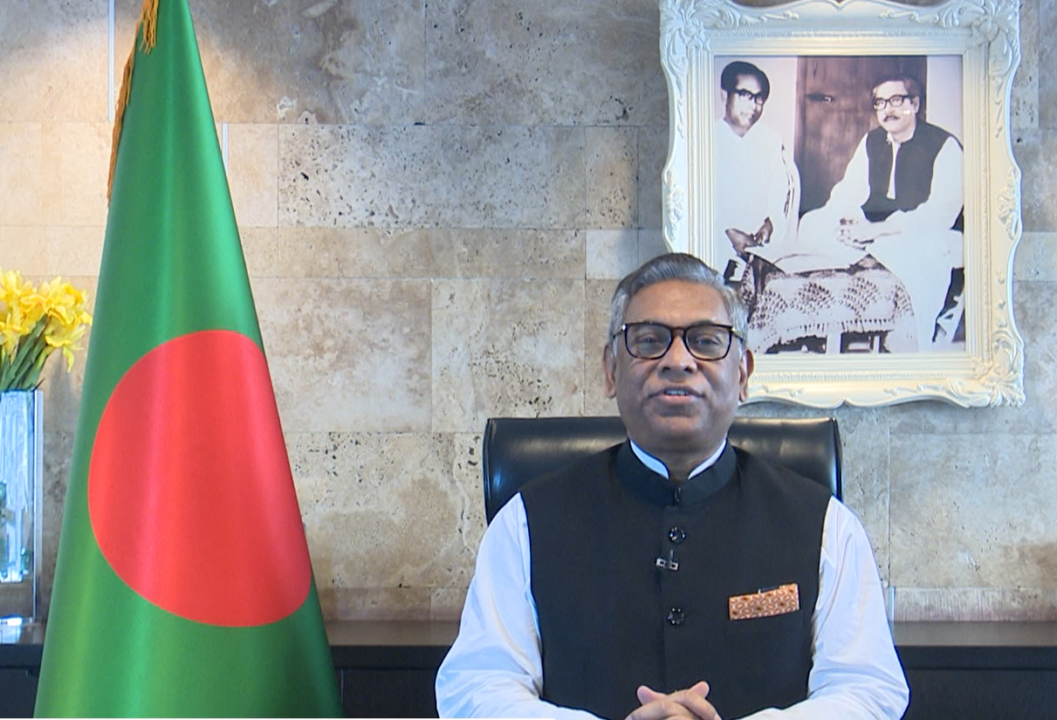Excellencies, distinguished delegates, and listeners,
It is indeed an honor and privilege for me to say few words in the High-level Dialogue on Energy at 76th UNGA (United Nations General Assembly).
Bangladesh’s energy sector has achieved remarkable success under the dynamic and visionary leadership of Hon’ble Prime Minister Sheikh Hasina. The country is now on the verge of achieving universal access to electricity and is recognized as one of the fastest growing economies in the world. It is a matter of pride when we are celebrating the Birth Centenary of the Father of the Nation Bangabandhu Sheikh Mujibur Rahman and the Golden Jubilee of Independence.
As a signatory to the Paris Climate Agreement and the UN’s Agenda for Sustainable Development, Bangladesh has been making all-out effort towards a cleaner energy transition within its limited resources. Bangladesh is always advocating for reducing the effect of climate change since Our Hon’ble Prime Minister is the Chairperson of the Climate Vulnerable Forum (CVF).
Bangladesh is now revising its power system master plan (PSMP) and preparing a more comprehensive power and energy sectors master plan, with a vision to promote a low-carbon transformation of the total energy supply and demand system and ensuring economic viability.
This is particularly important when Bangladesh is in the process of the energy transition with a view to scaling down the use of fossil fuel and boosting the use of renewable energy. Recently, 10 coal-fired power plants having combined generation capacity of 8451 MW have been canceled. While many countries ignore an environmental consequence in their effort to economical development, Bangladesh has been very particular in protecting the environment while pursuing development efforts.
Back in 2008, we have adopted Renewable Energy Policy which mended 10% electricity come from renewable. To meet the Renewable Energy policy target, Government has been prepared renewable resources assessment and renewable power generation Roadmap up to 2030.
Bangladesh launched the Solar Home System (SHS) project which is the biggest in the world and till today 6 million Solar Home Systems have been installed powering more than 20 million people of the vulnerable communities and off-grid areas. Considering the land availability, we are now obtaining for innovative solution for solar power.
The country is also looking at wind prospects. Wind mapping has been done at nine sites and will carry out a study on offshore wind prospects very shortly. We are aspiring to scale up the renewable generation up to 40% of our generation mix by 2050.
As an alternative we have introduced LNG and nuclear power for the base load generation. We are also giving due importance to cross border trade of electricity. As part of cross-border power trading initiative, Bangladesh is importing 1160 MW electricity from India. However, Bangladesh would like to import electricity produced from clean energy sources such as Hydro electricity from Nepal and Bhutan and Solar energy from India.
I believe upcoming revised integrated Power System Master Plan will helps us in identifying, prioritizing, and managing effective energy efficiency and conservation to ensure sustainable development and we are heading toward clean, affordable, and reliable energy for all.
Thank you very much for patience hearing.
Joi Bangla, Joi Bangabandhu May Bangladesh Live Forever

